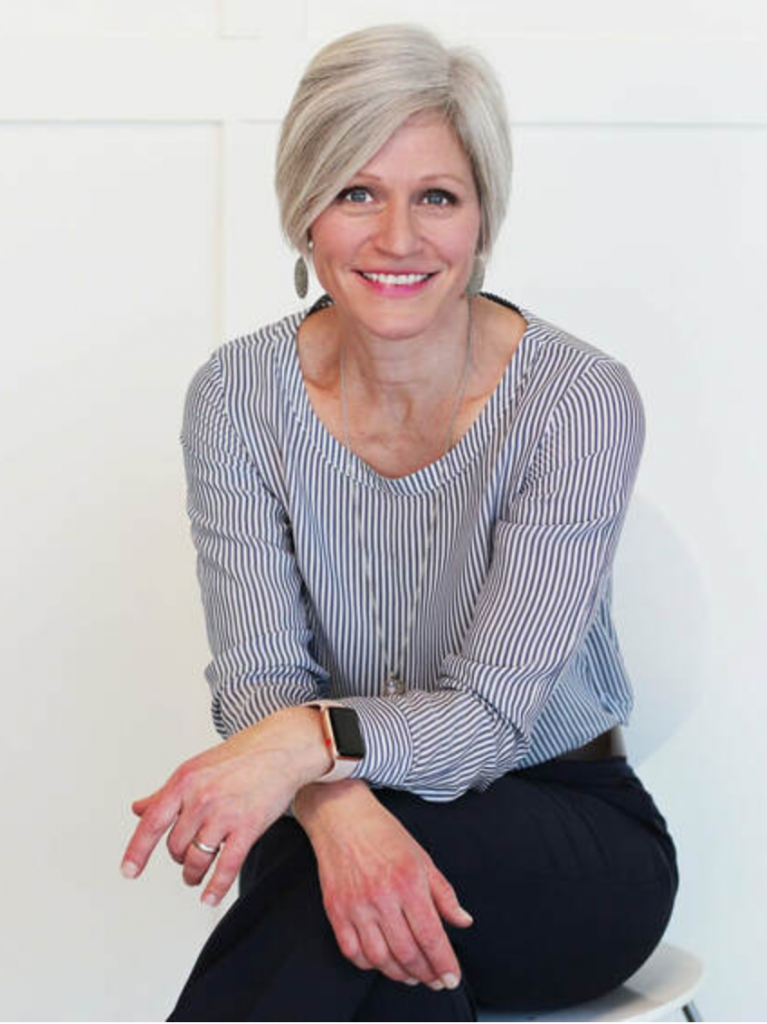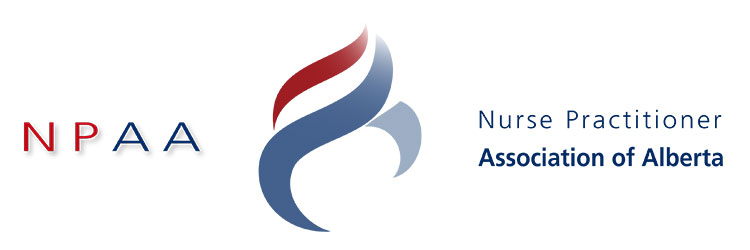By Anne Summach
Many Nurse Practitioners in Alberta work within established organization such as Covenant Health, Alberta Health Services, or a Primary Care Network. Then there are those NPs who are stepping out into independent practice and pushing the boundaries of NP care in the province. There are a number of NPAA members who have established private practices – this is an interview with one of them.
Susan Prendergast – Nurse Practitioner and Clinical Director of Ellithia Healthcare
What prompted you to consider moving into Advanced Practice Nursing?

I had been an RN for over 15yrs – both the NICU and public health. I had a very strong background and expertise working with newborns and young families. While working as a public health nurse in Edmonton and after a home visit one morning, I returned to the office and was asked to meet with my manager. I was reprimanded for offering the woman a way to manage her engorgement; the treatment, although very commonly utilized everywhere else in the country, was not written in our policy manual. As such, I was not allowed to suggest it. I knew at that moment that it was time to move onto graduate school and into another role.
How did you make the transition from RN work through your advanced degree and into NP practice?
While in graduate school and NP program, I worked as a research assistant, teaching assistant and maintained my RN license by working casual in the NICU. It was a struggle – the program was demanding and my cohort of peers were exceptional. But I felt that I needed to meet other professionals, researchers and educators in order to understand the full scope of NP practice. Because I continued to work while I was in school, my skills, at least specific to newborns and breastfeeding, were maintained, easing the transition to NP practice. Most importantly though, were the connections I made, and mentoring I was fortunate to receive, from clinical preceptors during my program. These women impacted my learning and my practice significantly and I remain connected with them even now, 13 yrs later.
What extra training did your current position require over and above your NP program?
My practice is highly focused on hormones and endocrine health. As such, much of what I now do in my role is related to continuing medical education. I have spent years learning and researching about fertility, endocrine health and hormone replacement therapy for women and men on my own and have also completed courses on these topics. In my practice I also do primary care; many of my patients do not have a primary care provider (PCP) so I do that work as well.
How did you land your first job as an NP?
My first job was offered to me during my final clinical placement by the physicians doing my preceptorship. I worked alongside them in their practice for five years full time and then, when I decided to focus on teaching and left full time clinical practice, I worked as a consultant in the PCN.
Can you tell us a bit about where you work and with whom you collaborate?
I am in private practice in South Edmonton in the Summerside area. I am a sole practitioner and co-owner of Ellithia Healthcare. I collaborate with my patients as well as primary care providers and specialists around Alberta. I also collaborate and share referrals with naturopathy, physio and endocrinology very frequently.
How does your role fit within established health care roles in the health care marketplace?
My role for most of my patients is complementary to established health care roles. The majority of my patients have a PCP who supports them in disease prevention and management. Because infertility, endocrine disease/disorder and hormone replacement are complex, coupled with a general lack of training in treatment of these challenges, PCPs do not have the time to support patients in these areas. Patients often find me on their own through internet searches or through conversations with friends and family who have seen someone like me. They come to me for education, support, assessment and management of symptoms that are often long-standing and have not been addressed by typical primary care.
What do you feel is unique about your practice role?
I am one of but a few providers of patient-led hormone replacement therapy in Alberta. I have strong relationships with all of my patients and because my practice is patient-led, I typically spend up to two hours with each patient before they are provided with hormone prescriptions. I see all of my patients annually. I also have a few patients for whom I’m fortunate to act as their primary care provider, which allows me to stay current and to maintain skills in physical assessment. With the pandemic, I have maintained my practice by fully taking advantage of the technologies available to do virtual appointments – this has allowed my patients to stay healthy and well during a time of significant stress.

What does your typical day look like?
I spend two full days per week in my practice (either virtually or in person). I start my day at 0830hrs and see new and seasoned patients throughout the day. I offer a complimentary 30 minute consultation for new patients where I do a brief history and where the person and myself discover whether we will be able to work together. After I’ve reviewed blood work and carried out any other necessary examinations/tests, I offer patients who are appropriate for my practice the opportunity to book an appointment. I make this decision based on whether I feel that I can help them – this is important to me as patients are paying for my care, and if I can’t help them I won’t take their money. Each initial appointment is scheduled for one hour and I also do at least one follow-up with patients after they’ve been on their medications for 3 months to check in re; response etc. As mentioned, I see all patients annually as well. I leave myself enough time to chart, send prescriptions, check blood work etc during the day but I also spend a great deal of time on a daily basis answering emails from patients and doing paperwork. I have an administrative assistant that books patient appointments and answers our phone – without him I’d not be able to do this work! He also happens to be the co-owner and business manager so he does all of our marketing. It’s a busy practise and at some time in the near future I will likely be able to start mentoring another NP to join me which is exciting!
What do you feel is the biggest impact of the role of the NP in your practice setting?

I am one of two NPs who do this work in Alberta and the other NP is one of my previous students! We have found that our patients seek us out and stay with us because of the way that we maintain a nursing approach in a medical type of role. We spend time with our patients, and we are fully engaged in supporting them to achieve health and to feel well. This is what NPs do differently than MDs, and it’s what separates NPs in all areas of healthcare. Patients appreciate our time and expertise, but they also are more likely to achieve the results that they’re hoping for because of the NP…and I have references to support this!
Describe one significant learning about the role of the private practice NP.
As one of only a few NPs in private practice, I have learned that I am not a businessperson. I have had to seek support to develop and grow my practice with a business mindset in order to ensure that I am being paid and supported to do this work. For the first few years working in private practice I made no money and I was giving away care. I struggled with taking money from people for care that they should be able to access. But because NPs cannot bill Alberta Health for patient care, there is no alternative. I continue to work through this, and I’m learning to appreciate the freedom of private practice (with help from my business partner!).
What is one thing you wished you knew before starting your business?
As nurse practitioner students, we do not learn how to run a practice. This sort of experience and knowledge is learned on the job, and often through interaction or mentoring from others who are also not business professionals. More business knowledge when I started my career as a NP would have allowed me to maintain a better work-life balance and grow a stronger business right from the beginning.
Describe the challenges you face in your role.
The biggest challenges I face in my current role are accessing things like Netcare and an EMR – we take these things for granted when working for Alberta Health or in a practice with others and they are essential to providing excellent care. These things take a significant amount of time to organize and as well, cost a lot of money. I certainly did not appreciate this before going out on my own!
Are you involved with research or teaching currently?
I am so fortunate that I am able to spend time on plenty of patient teaching. I am not currently involved in any research projects directly related to my clinical work. Having said this however, I do a great deal of personal reading in order to stay current and to provide the best care that I can for my patients. Also, I do not work privately full-time. I am an assistant professor at Dalhousie University teaching NP students and have several projects on the go researching NP education.
What is something that all NPs can learn from your private practice experience?
Something I talk about a great deal in the classroom is the importance of listening to patients. Many of the people who seek out and pay for care outside of their PCP’s office could be managed by that PCP. Many patients feel as though they are rushed out of their provider’s office with short appointments; final diagnoses take a long time to be discovered because of the lack of time and attention given. One thing that we as NPs do differently is that we nurse; we listen and consider our patients holistically. This is what sets us apart and it’s what our patients appreciate.
How can the NPAA support NPs working in your practice area?
One of the most significant challenges to NP practice in primary care specifically, is the lack of a funding model. I hope that the NPAA will continue to work and advocate for a funding model which also allows NPs to maintain the relational type of work that we do – different than physicians.
What is one thing that you think NPs should be pursuing, as a group of professionals working towards the future of healthcare in AB?
I believe that if NPs could be offered an opportunity to be paid for their work separately from a PCN or a physician’s practice (so completely independently), we could do even more for the citizens of Alberta. Having the opportunity to set up practices in rural or underserved urban areas, and to be able to do this in a manner that is financially realistic, should be our focus.
Do you have advice for NP students who want to work in private practice?
For RNs who wish to work as a NP, my advice is to gain expertise in your field before you return to school as it’s very difficult for our NP graduates to get their footing if they’re entering graduate studies with the minimum RN hours under their belt. For NPs who wish to work in private practice I would offer the same advice; gain expertise by working alongside others and getting a feel for what you can do. Oh…and hire a business partner!
Editor’s Note: If you know an NP in an interesting role, connect them to our writing team at communications@albertanps.com.

